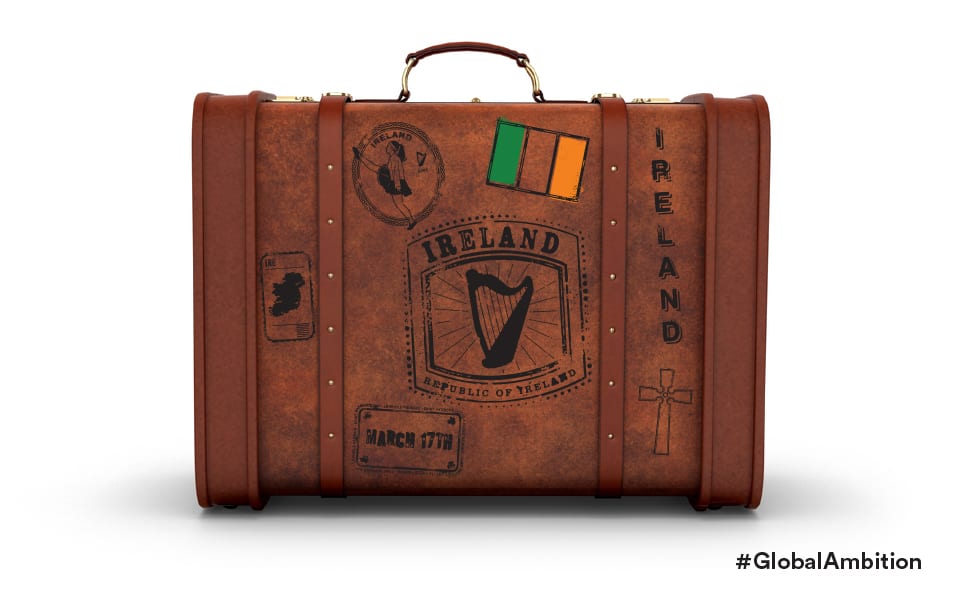Irish companies selling in the US market should use branding and marketing communications that are more direct and more Irish than they would use at home.
That was a key insight that emerged at the E3: ‘Entrepreneurship Export Exchange’ conference in Dublin, during a session on ‘Defining your brand and pitching your company in America’, led by Brett Bruen, President of Global Situation Room, and Gina London, a former CNN correspondent turned communications consultant.
Straight talking
“What works well in Ireland, the UK, or the rest of Europe, does not necessarily lead to success in the American market,” advised Bruen, a former US diplomat, who served at the White House as a director of global engagement in charge of public diplomacy, international media, and crisis communications.
“Many Irish firms that work with Global Situation Room have an understated quality to their marketing communications that is not as well received in the United States as it is here,” he said.
“In the US, you need to emphasise why you are the best. It’s not just about your technology. You need to tell the story of your company and explain why it is passionate about its products.”
Playing the green card
One of Bruen’s key insights is that Irish companies should take full advantage of their national identity, and the ways in which Ireland and the Irish are viewed so positively in the USA.
“Whether you are selling soap or solar panels, Enterprise Ireland-backed companies really should wrap themselves in the Irish flag,” he advised. “In the US, Irish identity is associated with a level of honesty. US Americans, no matter what their own ethnic background might be, have an affinity with what they believe the Irish represent.
“That means, for example, that you should say that you are an Irish company in your PowerPoint presentations, and should also explicitly say so on your website.”
Bruen’s firm, Global Situation Room, were co-sponsors of the conference with Enterprise Ireland. He advised attendees that strong, relevant website content was a crucial element of branding and marketing in the US.
“I would really encourage Irish firms coming to America looking for business or investment to have someone with expertise in the American market go through their website and check for inconsistencies,” he noted.
“Just because your digital content is in English don’t assume that it will be OK for American audiences. There are cultural preferences and linguistic differences that you need to adopt for marketing messages to succeed.”
Branding is also about you
Gina London advised that Irish business leaders should remember that how they present themselves, and how they communicate personally, is an important aspect of branding and marketing, especially when seeking the backing of American investors.
“When you meet other CEOs, you need to have a handshake that is firm. You need to maintain eye contact. You need to be upfront and not pull back,” London said. “You have to show that you are confident, that you are a peer, and an equal.
“Americans are more direct than Europeans. They make a decision about whether to do a deal with someone largely within the first few minutes of meeting, when they determine if you are credible and ‘have the goods’. Americans are wired to look for weakness and to see if one party has an advantage over the other in a relationship. You are more likely to get a deal, and get a better deal, if you are not going cap in hand to someone.”
Of course, there are company founders and CEOs who are more reserved than others, and aren’t as comfortable making full-length presentations to, for example, a group of potential investors. Nevertheless, London advises that the CEO should be present at such meetings, and should speak for at least a few minutes about how they founded the company, before handing over the rest of the presentation to another member of the senior management team.
Practice your pitch
“Every company founder should be able to tell the story of how they came to create the company without difficulty,” says London. “They should rehearse it until they have it pat.
“The Irish pride themselves on being a nation of storytellers. As a result, they sometimes tell their story on the wing, or from the hip. That isn’t good enough. You need to rehearse telling your story so that it has a beginning, a middle, and an end, and especially a good ending that emphasises why you are the best at what you do, and why you meet a real need.”
“Don’t leave an American audience to draw its own conclusions, when you are pitching your business,” adds Breun. “You are dealing with a different culture. You need to keep it short and sticky and make your exact value proposition clear to the person you are engaging with. Emphasise that and underline it.”
Think local
Both Bruen and London stressed that America should not be seen as one homogenous market. Both advised that marketing communications that work in New York or Boston will not necessarily work in Mississippi or Georgia.
“Do your homework,” advised London. “This is very basic stuff but when meeting a potential client or investor spend some time online researching the individuals you will meet and their companies. Also, find out about the places they live and work. If it looks like you understand the local culture, you will look like you know what you are talking about.”
Learn how Enterprise Ireland can help your business to export to North America on our USA Markets page.



